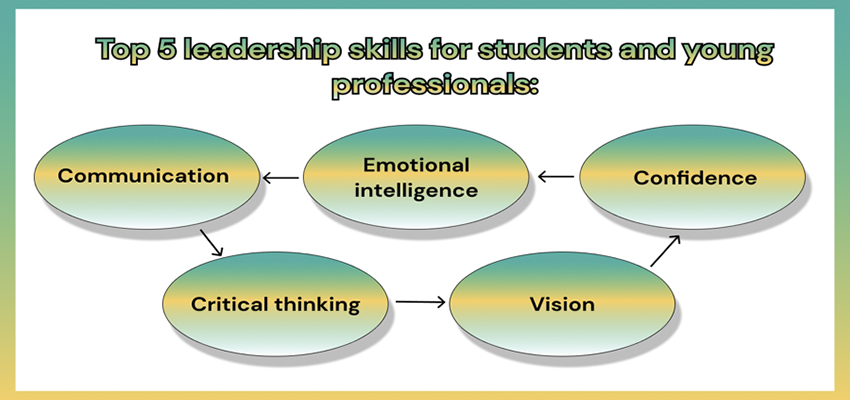
Non-profit organizations nationwide are navigating a fresh wave of challenges in today’s economic climate.
While tight budgets have always been a reality for community groups, many are now facing even greater strain due to shifts in government funding.
Gina Sian, who leads Regions Bank’s Making Life Better Institute, understands the mounting pressure this places on nonprofit leaders. For the past five years, Regions’ Community Engagement team has been hosting the Important Insights for Community Organizations webinar series—offering free guidance, drawing on the bank’s in-house expertise to support organizations where it’s most needed.
One recurring topic Sian hears from nonprofits is the difficulty of staff development.
“Many in the nonprofit sector know the saying, ‘No money, no mission,’” Sian explained. “But just as important is your team—the people who share your mission, have the skills to bring it to life, and are willing to grow with your organization. That’s a big challenge when resources are limited.”
To address how nonprofits can enhance employee growth without straining budgets, Sian invited a panel of Regions’ Learning and Development specialists—Jinny Walker, Barry Ward, and Ressie Chambers—to share practical, low-cost strategies. The session brought together 71 participants representing 45 organizations across 39 cities.
Walker began by asking attendees to contribute to a word-cloud exercise, highlighting the most common hurdles in staff and volunteer training. The top concerns—time, budget, technology, staffing, and expertise—were no surprise.
Her advice for starting strong:
While tight budgets have always been a reality for community groups, many are now facing even greater strain due to shifts in government funding.
Gina Sian, who leads Regions Bank’s Making Life Better Institute, understands the mounting pressure this places on nonprofit leaders. For the past five years, Regions’ Community Engagement team has been hosting the Important Insights for Community Organizations webinar series—offering free guidance, drawing on the bank’s in-house expertise to support organizations where it’s most needed.
One recurring topic Sian hears from nonprofits is the difficulty of staff development.
“Many in the nonprofit sector know the saying, ‘No money, no mission,’” Sian explained. “But just as important is your team—the people who share your mission, have the skills to bring it to life, and are willing to grow with your organization. That’s a big challenge when resources are limited.”
To address how nonprofits can enhance employee growth without straining budgets, Sian invited a panel of Regions’ Learning and Development specialists—Jinny Walker, Barry Ward, and Ressie Chambers—to share practical, low-cost strategies. The session brought together 71 participants representing 45 organizations across 39 cities.
Walker began by asking attendees to contribute to a word-cloud exercise, highlighting the most common hurdles in staff and volunteer training. The top concerns—time, budget, technology, staffing, and expertise—were no surprise.
Her advice for starting strong:
- Align training with organizational goals and priorities
- Build a sustainable learning culture
She also shared ways to make learning engaging and manageable:
- Offer training in small, digestible segments
- Tap into the expertise already within your team
- Promote self-directed learning
- Appoint a “learning champion” to keep momentum
- Keep the process enjoyable
Ward followed by pointing out free or affordable training options, such as workshops offered by community foundations, online platforms, or even public libraries. These can cover topics from fundraising and marketing to capacity building and financial management. “The key,” Ward noted, “is to choose resources that truly match your organization’s needs.”
Chambers, who not only works in Learning and Development at Regions but also serves as the executive director of Camp Chambers—a volunteer-run nonprofit serving underserved youth—offered insight from her own experience leading an unpaid and diverse workforce. She recommended:
Chambers, who not only works in Learning and Development at Regions but also serves as the executive director of Camp Chambers—a volunteer-run nonprofit serving underserved youth—offered insight from her own experience leading an unpaid and diverse workforce. She recommended:
- Using stories and real-world examples to connect with people
- Making training interactive to encourage action
- Encouraging mentorship and peer learning
She also cautioned against one-size-fits-all approaches or overwhelming participants with too much information. Her practical suggestions included:
- Starting with no-cost resources
- Hosting informal “lunch and learn” sessions
- Inviting skilled volunteers to share their expertise
- Partnering with other nonprofits to exchange ideas
- Joining the local chamber of commerce for networking opportunities
The session sparked active discussion in the chat, with participants exchanging resources and ideas. For leaders like Joan Wright, executive director of Childcare Resources in Birmingham, the webinar provided actionable takeaways—especially the variety of free tools available for staff development. Wright praised the format for being free, accessible, and professionally led, and said it has helped her team explore new approaches in their work.
For Regions’ associates, the series is as rewarding as it is impactful.
“It’s meaningful to share knowledge with nonprofits who are working hard, often with minimal staff and budget,” Walker said. “Not every organization has access to the resources we do, and it’s great to help others amplify their impact.”
She added, “I’ve grown within Regions, so sharing what I’ve learned with community partners feels like a way to pay it forward. It’s a privilege to give back in a way that’s directly tied to what I’m passionate about every day.”
For Regions’ associates, the series is as rewarding as it is impactful.
“It’s meaningful to share knowledge with nonprofits who are working hard, often with minimal staff and budget,” Walker said. “Not every organization has access to the resources we do, and it’s great to help others amplify their impact.”
She added, “I’ve grown within Regions, so sharing what I’ve learned with community partners feels like a way to pay it forward. It’s a privilege to give back in a way that’s directly tied to what I’m passionate about every day.”


 Cost-Effective Staff Development Strategies for Non-profits
Cost-Effective Staff Development Strategies for Non-profits




 Companies
Companies